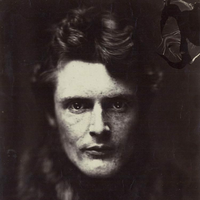Across the Pampas
Dost thou remember, oh, dost thou remember,
Here as we sit at home and take our rest,
How we went out one morning on a venture
In the West?
Hast thou forgotten, in these English hedgerows,
How the great Pampas rolled out like the sea?
Never a daisy in that mighty meadow!
Never a tree!
Full were our hearts upon that sunny morning;
Stout—handed and stout—hearted went we forth.
The warm wind in our faces breathed us fortune
From the North;
And high in heaven the sun stood for a token.
We had no other sign by which to steer.
No landmark is there in the Earth’s great ocean,
For mariner.
Dost thou remember how, when night was falling,
There in the middle plain, as best we might,
We set our little tent up as a fortress
For the night?
Dost thou remember how, through the night watches,
We listened to the voices of the plain,
The owls and plovers and the bold bischachas,
Talking like men?
Drowsy we sat, and watched our horses feeding,
Dim through the night, while over the tent’s mouth
The Cross was turning like a clock and reeling
In the South.
But, as the night grew out and we grew chilly,
Under our blankets safe we crept and warm,
Full of good heart and each with loaded pistols
Close to his arm;
And so dreamed pleasant dreams of far off faces,
And trees and fields which we had loved in youth,
All in a maze of present apprehension
Mingled uncouth;
And how we travelled on and ever onwards,
Still in the red path of the setting sun,
Until into the heart of a great woodland
We had come;
And there saw, round about our strange encampment,
Flocks of bright birds which flew and screamed at us,
Red cardinals and woodpeckers and parrots
Multitudinous;
And on the lake black—headed swans were sailing,
And in the morning to the water’s brink
Flamingoes, like the rising sun, came wading
Down to drink.
Dost thou remember, oh, dost thou remember
How, in that fatal wood, the mancaròn
Found out a poisonous herb before his fellows,
And fed thereon;
And how we left him, and how Caesar sickened,
And how the sky grew dark and overcast,
And how two tragic days we rode on silent
In the blast;
And how the wind grew icy and more icy,
Until we could not feel our hands or feet,
As sick at heart we sought in vain a hiding
From the sleet;
Lighting at last on a deserted post—house,
Where we found shelter from the wind, but nought
Of entertainment for our souls or comfort
Of any sort;
And how in that wild pass brave Caesar dying
Stretched out his arm towards the promised land,
And saw as in a dream the white hills lying
Close at hand,—
For, ere the sun set, suddenly that evening,
The great plain opened out beneath our feet,
And, in a valley far below, lay gleaming,
With square and street,
And spire and dome and pinnacle, uprising
White on the bosom of a mountain slope,
To our amazement bodily the city
Of our hope.
Dost thou remember, oh, dost thou remember
How the bells rang as, sick and travel—worn,
A weary crew, we made our solemn entry
To the town?
Strangely, as phantoms out of the great desert,
We came into the city, and at last
Heard sound of Christian singing in the churches
As we passed:
And laid at length our weary limbs in rapture
Between the clean sheets of a Christian bed.
Oh! there are things I think we shall remember
When we are dead!

